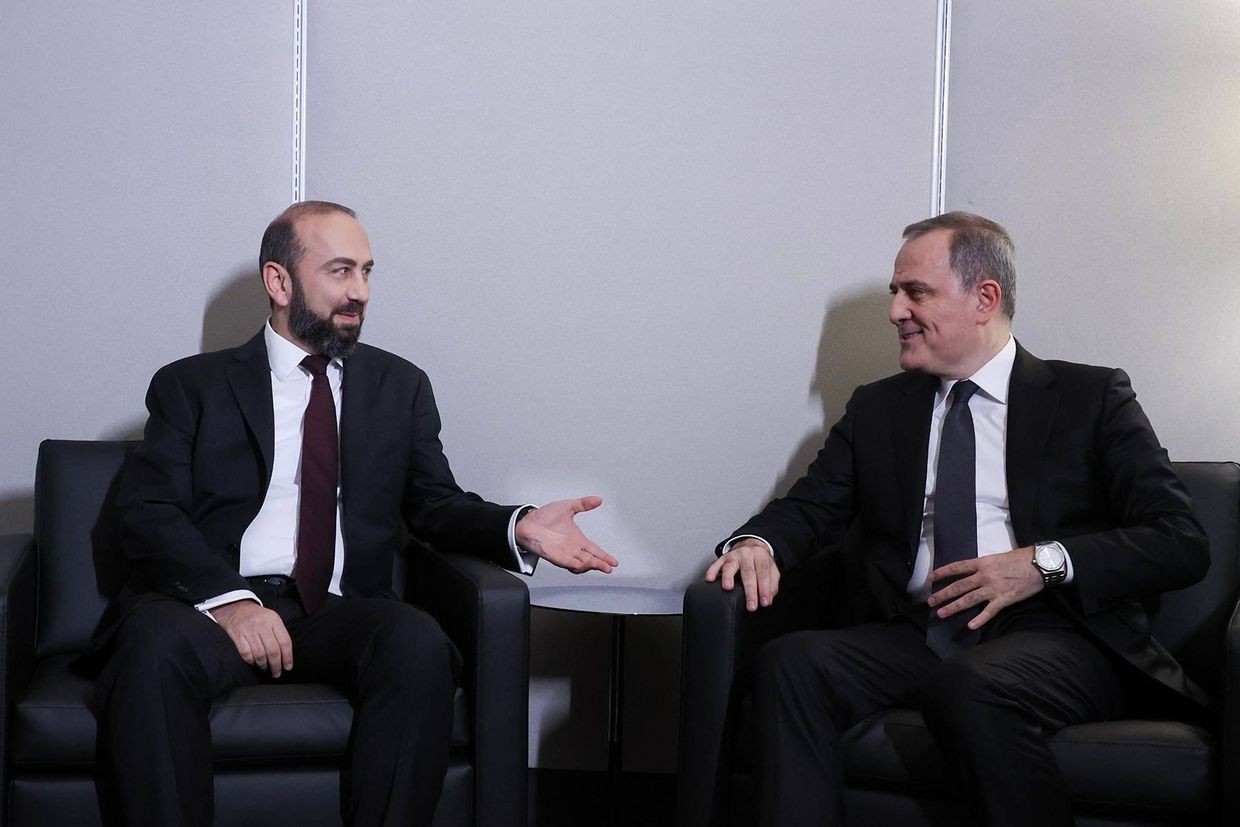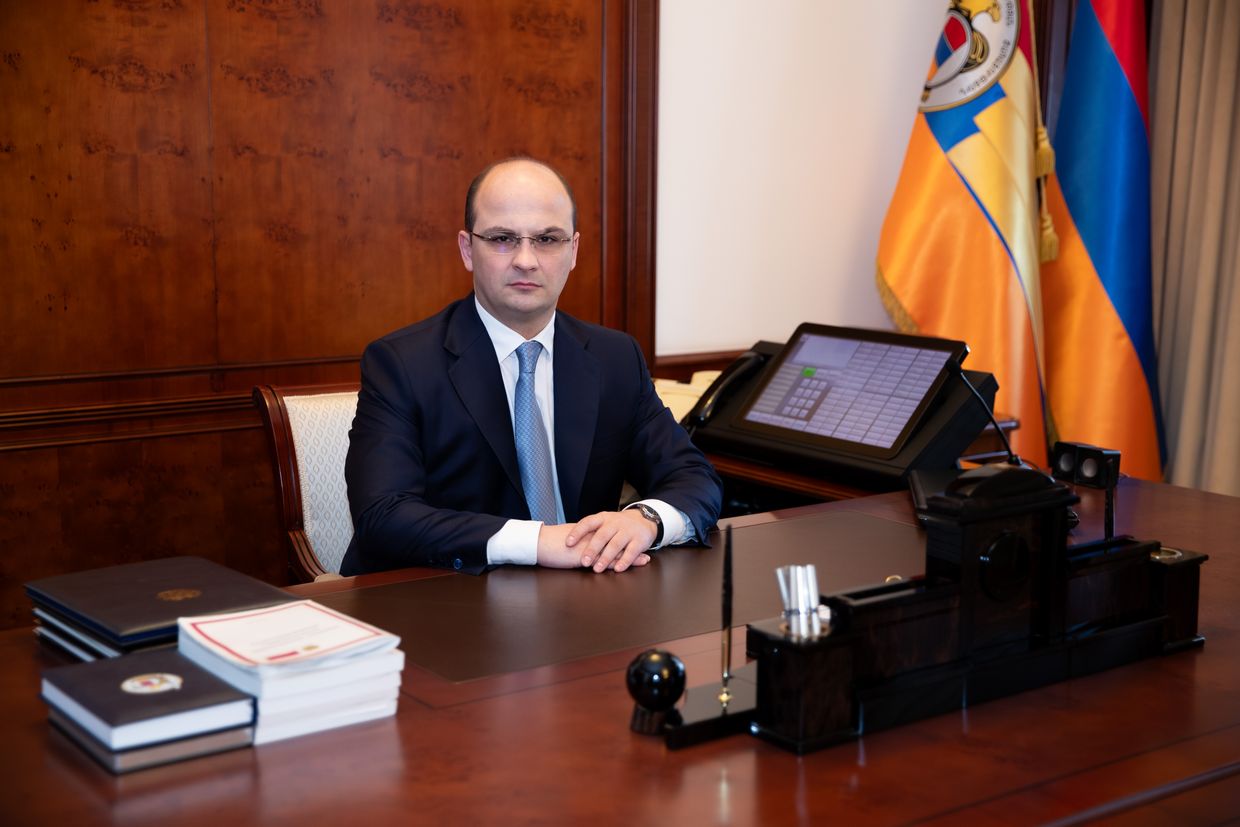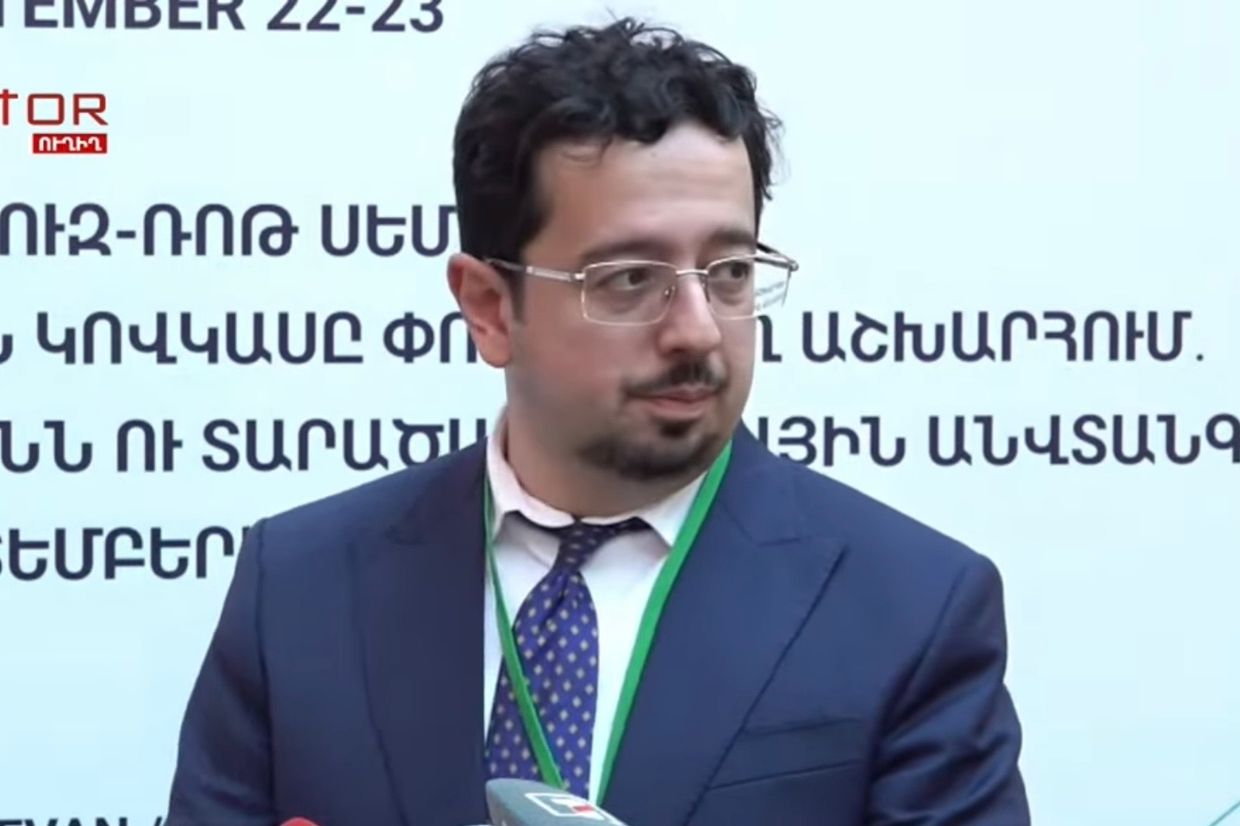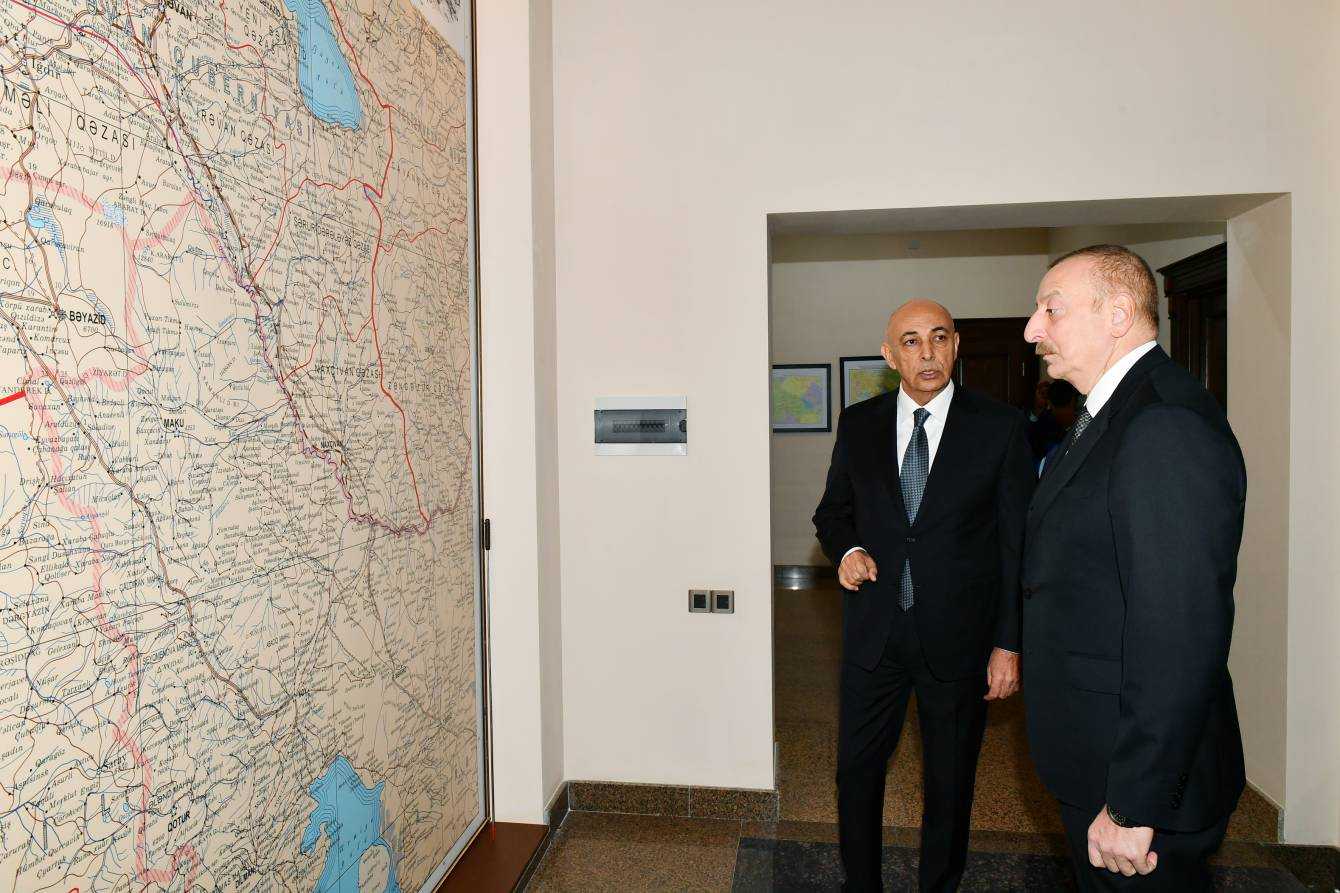
On Monday, Armenian Foreign Minister Ararat Mirzoyan met with his Azerbaijani counterpart Jeyhun Bayramov in New York, on the sidelines of the UN General Assembly session.
‘Building upon the outcomes of Washington D.C. Peace Summit of 8 August 2025, the ministers exchanged views on possible further steps to advance the peace agenda’, the Armenian readout said.
The sides also ‘agreed to continue their dialogue’.
The unprecedented Washington summit between Armenia, Azerbaijan, and the US saw the initialling of the peace treaty, as well as an agreement to establish a route between Azerbaijan and its exclave of Nakhchivan through Armenia called the Trump Route for International Peace and Prosperity (TRIPP).
Following the deal, Prime Minister Nikol Pashinyan and President Ilham Aliyev separately announced that peace had been established between the two states.
Armenian prisoners’ release issue
Following the Washington summit, Armenian and Azerbaijani officials or other notable public figures paid unprecedented visits to their respective countries three times in September.
One such visit came on 19 September, when a delegation led by Andranik Simonyan, the Chief of the National Security Services of Armenia, participated in a security forum held in Baku from 19–21 September.

The visit sparked hopes among the families of Armenian prisoners held in Baku; however, no release has been announced.
According to official figures from Baku, Azerbaijan has acknowledged custody of 23 Armenian prisoners, including some of the former leadership of Nagorno-Karabakh.
On Tuesday, the Armenian tabloid media Hraparak cited an unnamed ‘trusted source’ as saying that during his visit to Baku, Simonyan handed over to the Azerbaijani side a list of ten Armenian detainees whom they request to be released ‘within the framework of the normalisation of bilateral relations’.
Hraparak also published the names, highlighting that the former leadership of Nagorno-Karabakh were not listed.
In turn, Azerbaijan reportedly ‘demanded the release of two citizens’ of Syria, Muhrab Muhammad al-Shkheir and Yousef Alabed al-Hajj.
The two were detained during the Second Nagorno-Karabakh War in 2020, and were accused of being mercenaries fighting for Azerbaijan.
The individuals were charged with committing war crimes and terrorism and were sentenced to life in prison in Armenia in 2021.
On Monday, in Yerevan, the deputy director of the Baku-based Topchubashov Centre, Murad Muradov, was asked if Azerbaijan would be open to releasing Armenian prisoners — including Nagorno-Karabakh’s former leadership — as a gesture of peace.
In response, Muradov said it was ‘premature to speak about that in the context of a peace treaty’.

Armenian prisoners again reportedly requested that Pashinyan be questioned
On Monday, Azerbaijani state-run media APA reported that during their ongoing trial in Azerbaijan, Armenian detainees demanded that the prosecution also question Pashinyan and others as part of their case, which the judge rejected.
The demand echoed the request former Nagorno-Karabakh State Minister Ruben Vardanyan made earlier in September, which the court also rejected.
Independent or international media are not allowed to cover the ongoing trials against Armenians held in Azerbaijan.
During their trial, the former deputy commander of the Nagorno-Karabakh Army, David Manukyan, demanded that Pashinyan be summoned as a witness. David Babayan, Nagorno-Karabakh’s former Foreign Minister, who requested that Armenian Foreign Minister Ararat Mirzoyan and the co-chairs of the now-dissolved OSCE Minsk Group attend.
Babayan particularly singled out Andrzej Kasprzyk, the Personal Representative of the OSCE Chair-in-Office.
In turn, Davit Ishkhanyan, the former parliamentary speaker of the region reportedly ‘requested the court to invite six generals of the Russian peacekeepers [...] as witnesses’.

For ease of reading, we choose not to use qualifiers such as ‘de facto’, ‘unrecognised’, or ‘partially recognised’ when discussing institutions or political positions within Abkhazia, Nagorno-Karabakh, and South Ossetia. This does not imply a position on their status.










